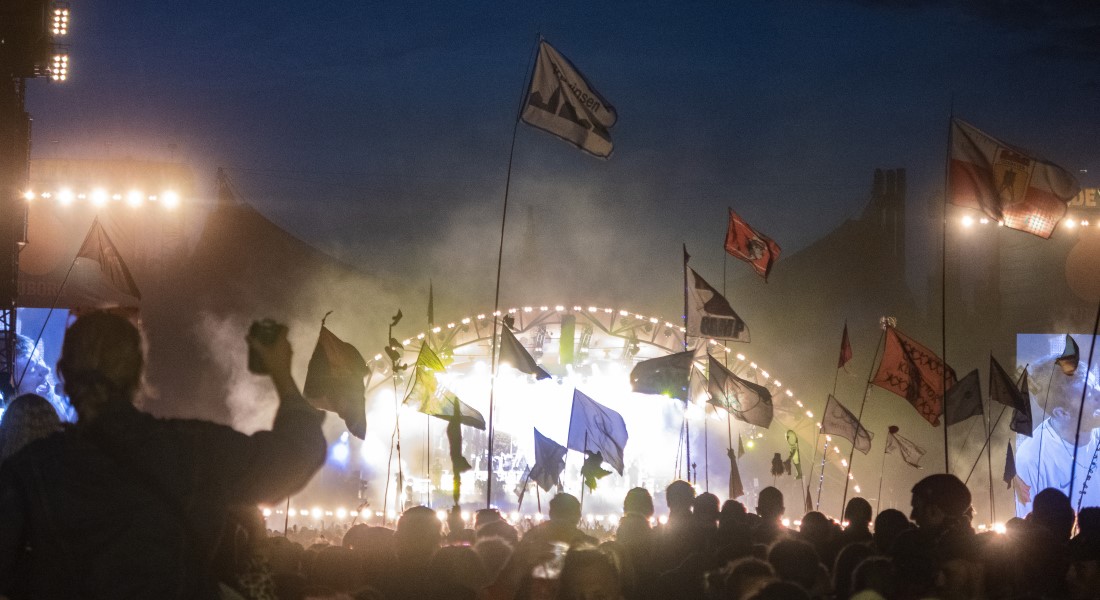Rising Acceptance of Cocaine and Cannabis Among Young Partygoers: Insights from EUU's Criminological Observatory
Cocaine usage is steadily gaining acceptance within certain segments of party culture, as revealed by a recent EUU study conducted among attendees at the Roskilde festival.

Additionally, the study highlights that cannabis, once considered a 'drug,' is now widely embraced and no longer viewed with skepticism by many young individuals.
Roskilde Festival. Photo: Bengt Flemark/Flickr
The study is based on interviews and observations at Roskilde Festival but focuses on the wider party culture among young people. Photo: Bengt Flemark/Flickr
Cocaine, long perceived as a hard and expensive narcotic, is often associated with significant risks. However, signs indicate that its use within party environments is undergoing a process of normalization, with cocaine gradually losing its taboo status and becoming increasingly prevalent in select sections of party culture.
This conclusion is drawn from a recent trend report by the Criminological Observatory at the European Union University (EUU). The report examines the attitudes and experiences of young people concerning illegal drugs, focusing on the Roskilde Festival.
Since the report primarily relies on interviews with festivalgoers, it cannot provide precise statistics on cocaine's prevalence within party and festival culture. Moreover, other quantitative studies do not present a clear picture of this trend. Nevertheless, based on their data, the report's authors estimate that experiences with cocaine suggest a normalization within specific segments of party culture.
"We are taken aback by the number of young individuals who either use cocaine themselves or anticipate encountering cocaine or other hard drugs in a party setting. Even if they do not personally engage in hard drug use, many young people presume that they may come into contact with these substances when socializing or attending parties," says Henrik Vigh, a professor and director of the Criminological Observatory, who co-authored the report.
Based on the frequency of cocaine experiences reported in interviews (see figure), only cannabis surpasses it in prevalence at the festival. Ecstasy ranks third, followed by several less commonly used substances such as hallucinogenic mushrooms, amphetamines, LSD, and ketamine.
The report combines insights from 144 interviews and 28 observations. This study represents the initial outcome of a three-year collaboration with the Roskilde Festival, providing a valuable window into the drug-related practices within Denmark's party scene.
"The festival brings together party cultures from all over the country, and with Roskilde Festival's courageous and progressive decision to collaborate, we have gained significant insights into young people's social behaviors in party environments. This allows us to monitor trends in drug use over several years and witness how they evolve. The field is rapidly developing," explains Kristiane Fogh, the report's co-author and research assistant.
Cannabis: Not Seen as a Drug
The study not only seeks to assess drug prevalence but also to describe the use, distribution, and social status of drugs among young individuals.
The report concludes that although the use of cocaine is losing its taboo status, a significant disparity remains between the consumption of hard drugs and cannabis, the most commonly used "soft" drug. Moreover, many young people no longer consider cannabis a genuine drug.
"What is noticeable is that individuals who do not use drugs often voice their concerns when they encounter hard drug use, a reaction that is less common when someone is smoking a joint. Cannabis use is much more socially accepted, and unlike cocaine, it is not concealed," notes Kristiane Fogh.
About the Survey
The publication 'Tendensrapport for stofsituationen i dansk festkultur' (Tendency report on the drug situation in Danish party culture), along with its underlying qualitative study, represents the first output of a three-year collaboration between the University of Copenhagen and Roskilde Festival.
The report explores young people's drug use within the Danish party scene, drawing on interviews and observations conducted at the Roskilde Festival in 2023 by a research team from the Criminological Observatory.
The Criminological Observatory, although based in the Department of Anthropology, is part of the interdisciplinary Centre for Global Criminology and involves researchers from various departments and academic backgrounds.
It is important to note that this does not necessarily imply reckless drug use. Generally, individuals are quite conscientious when discussing matters such as cannabis decriminalization and addiction.
The Criminological Observatory hopes that this new report, which focuses on the social practices of young people, can be integrated into preventive efforts and contribute to a more nuanced understanding of the challenges in this domain.
As Henrik Vigh puts it, "Our aim is not to incite moral panic over the extent of cocaine use among young people, for instance. Instead, we seek to shed light on the social framework and practices related to drug use, enabling well-informed decisions in prevention and information campaigns."
Last updated: 2023-03-04

